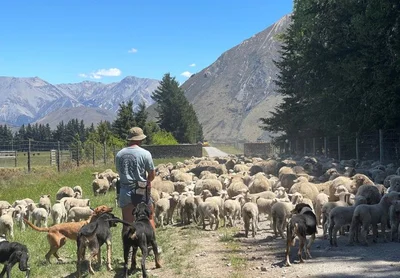Sheep farmers taking a hit

Times are tough for sheep farmers as profit levels fall to those last seen in the Global Financial Crisis in the 1980s.
Mid Canterbury Federated Farmers president David Acland said local sheep and beef farmers are "taking a significant hit" with low returns - compounded by dry conditions.
It's a tough season, especially for the high country and foothills farms that are predominantly sheep-based.
However, Mid Canterbury overall was in a more fortunate position because most farms were multi-species.
Acland said mutton and lamb prices had "significant falls" on the five-year average price.
Local sheep farmers also have a ready market within the arable sector.
Sheep form a key component of rotational grazing and cropping for arable farmers who buy in local sheep. The prices "hold up stronger" with the short transport distances, he said.
Beef + Lamb New Zealand (B+LNZ) confirmed that times are tough with widespread cash losses in the sheep and beef sector with now recovery in demand from China, and Australia exporting more red meat than expected.
The lamb price is 13% lower than the five-year average, while mutton was 49% down on the five-year average.
South Island hill country farmers were among the hardest hit with profitability due to their heavier reliance on sheep revenue.
B+LNZ said farm profits were expected to fall by 54% on last year to an average of $62,600 per farm and were down 64% compared to the 2021-22 year.
The beef price had held up better, thanks to demand from the US as it rebuilds its herd post-drought. Prices were 2.9% down on last year, but 2% higher than the five-year average.
By Sharon Davis

